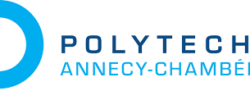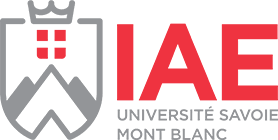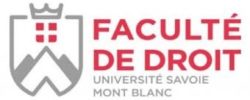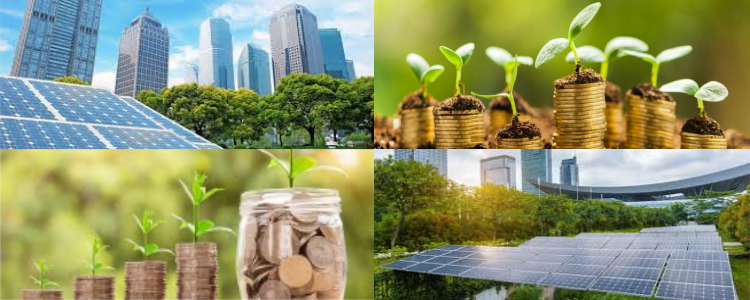- Master’s degree (Master 1 and Master 2)
- 2 tracks: SoLEM and ESBC
- 4 Semesters
- 120 ECTS
- Length: 2 years (60 ECTS per year)
- Hours taught: M1: 600 / M2: 300 + Internship
- Duration: beginning of September to end of June
- Scolarships
- Entry level BAC +3
- Intership
- Solar Academy scolarship
- Courses in english
- Capacity: 24 students (ESBC) and 12 SoLEM
- Campus: Bourget-du-Lac
- School: Polytech Annecy-Chambéry, IAE, FD
- Cost: 350€
1 master, 2 curricula
The two-year master program S3E, is composed of two tracks: ESBC (Energy for Solar Building and Cities), focused on engineering, and SoLEM (Solar Energy: Law Economics and Management) focused on economics. Contents of the courses: click here
Presentation
The Master program S3E SOLAR ENERGY: ENGINEERING AND ECONOMICS, is a highly innovative, new degree program preparing to tackle present and future challenges of the energy transition. It is a part of Solar Academy Graduate School recently awarded to University of Savoie Mont Blanc (USMB).
The two-year master program S3E, is composed of two tracks: ESBC (Energy for Solar Building and Cities), focused on engineering, and SoLEM (Solar Energy: Law Economics and Management) focused on economics.
This master program is jointly developed by the School of Engineering (Polytech Annecy-Chambery), School of Business and Administration (Institut d’Administration des Entreprises IAE Savoie Mont Blanc) and School of Law (Faculté de Droit) at USMB.
Located on the Bourget-du-Lac Campus, close to INES (National Institute for Solar Energy) experimental facilities, you will participate in high quality education and multidisciplinary projects, stimulating your creativity and entrepreneurial skills.
Violet Law, a student with a background in energy engineering and public policy, with a bachelor in energy engineering from the School of Energy and Environment, City University, Hong Kong. “Solar energy has a lot of potential for us to study. The Solar academy is a perfect place to explore the topic of solar using an interdisciplinary approach.[…] we also need to make sense of economics and policy to ensure that the solar energy efficient and accurate solution for clean energy transition in the future.”
Objectives
The Energy for Solar Building and Cities program combines practice and theory centered on the fields of solar energy engineering, building physics and materials science, with an opening to computer science, architecture and urban planning, law, economics and sociology.
The training provides the knowledge on how to deploy the energy transition in the building sector, with a particular focus on solar energy. It provides technical tools for system sizing and management, and develops an in-depth understanding of the energy transition, including its relationship with public policies, economic and industrial transformations, business models, legal concepts and tools specific to the renewable energy sector, in particular solar energy.
The core training in Solar Energy: Law Economics and Management program, based on economics, management and law, provides knowledge on how to apply the main tools of economic analysis and develop an in-depth understanding of the energy transition, including its relationship with public policies, industrial transformations, business models, legal concepts and tools specific to the renewable energy sector, in particular solar energy.
Schools
The training is multidisciplinary, in order to bring you, according to the chosen path, transversal and specific skills in the field of solar energy.
 School of Engineering, Polytech Annecy-Chambéry
School of Engineering, Polytech Annecy-Chambéry
 School of Business and Administration, IAE Savoie Mont Blanc, IAE
School of Business and Administration, IAE Savoie Mont Blanc, IAE
 School of Law, Faculté de Droit
School of Law, Faculté de Droit
Scolarships
Scholarship Amount:
- Master 1 – 2000€/Semester – 4000€/year (first payment in November 2023, second payment in March 2024).
- Master 2 – 2000€ for Semester 9 (2000€/year, payment in November 2023). In Semester 10, the student must do a compulsory internship which gives rise to an internship gratification. An extension to Semester 10 is possible (+2000€) for research interns at Solar Academy laboratories.
International
Courses are taught, in English, by international experts and highly recognized partners from national and international research institutions and industry as well as by academic staff of USMB.
Disciplinary and international mobility, as well as immersion in an international research environment, are an integral part of the curriculum, bringing added value to students in terms of training and research. Grants for international mobility, awards for best projects as well as scholarships awarded for excellent academic results are available.
20 weeks minimum. International experience integrated into the training: teaching by international experts, possibility of internship or training semester abroad.
Advantages of the training
Innovative multidisciplinary education offers common introduction to economics and law, focusing on environmental economics and energy law (important challenges in the energy transition), and to engineering sciences, focusing on solar energy (highly growing sector of renewable energy) and on energy efficiency in building sector (responsible for over 40% of world primary energy consumption)
Projects and workshops complement this unique teaching experience.
From the first year of the Master’s program, close links between students and laboratories will be developed through the organization of research projects each semester, starting with the analysis of the state of the art and a research project. An interdisciplinary project prepared jointly by the students of both courses is also planned and finally the master thesis (« Master thesis »). Students will thus be fully integrated into the life of the research laboratories.
Pedagogical modalitie
The pedagogical modalities include classical courses and tutorials, but also participation in conferences and thematic schools, project-based learning, and the publication of project results in the « Reseach Journal of Solar Academy ». Distance » courses (videoconference interventions) are also planned, in order to involve the best international specialists in the field in the training. A Scientific Solar Summer School will be organized every year.
Internship of 2 months in the first year of the master and 6 months in Master 2 (February to July).
The courses will be conducted in English. In addition, foreign language courses adapted to the needs of the students will be offered (English or FLE – French as a Foreign Language).
Continuing study
Ph.D. in Economics, Law, Management, Engineering Sciences, in particular solar energy deployment and energy efficiency, within the Solar Academy Graduate Program.
Following the master’s program, it is possible to continue with a doctoral program either at USMB or at a French or foreign university.
Careers
The objective of the ESBC program is to train future researcher and senior executives, including engineers in technical design offices. Companies in the energy and building sectors, consulting firms, government regulatory services and NGOs are interested in candidates with a dual set of skills, such as those they will be able to develop in the ESBC Master’s program.
The objective of the SoLEM program is to train future researchers and senior executives from public or private institutions and companies. Firms from the energy sector, consultancy offices, government regulation offices as well as NGOs are interested in candidates with a dual set of skills, such as the ones you will develop in the SoLEM Master program.
Admission – Who is the training for?
The ESBC program recruits students with a bachelor degree in Engineering, Physics, Sciences and Technologies or equivalent.
The SoLEM program recruits students with a bachelor degree in Economics, Management, Law, Humanities or Social Sciences, or equivalent.
A minimum of 180 ECTS credits is required as well as a sufficient knowledge of English language.
Apply
2 courses are proposed, with common courses. in the online applications, SoLEM and ESBC.
No applications are accepted outside of recruitment via Campus France, TTM or ECandidat, depending on your country of origin and your level of study.
A recruitment oral is organized in April for Campus France applicants and in May for other applicants.
Excellence scholarships are offered to the best candidates!


